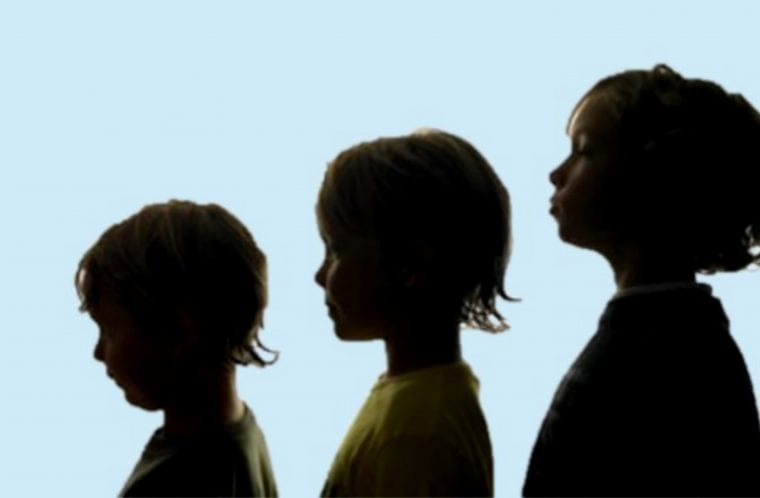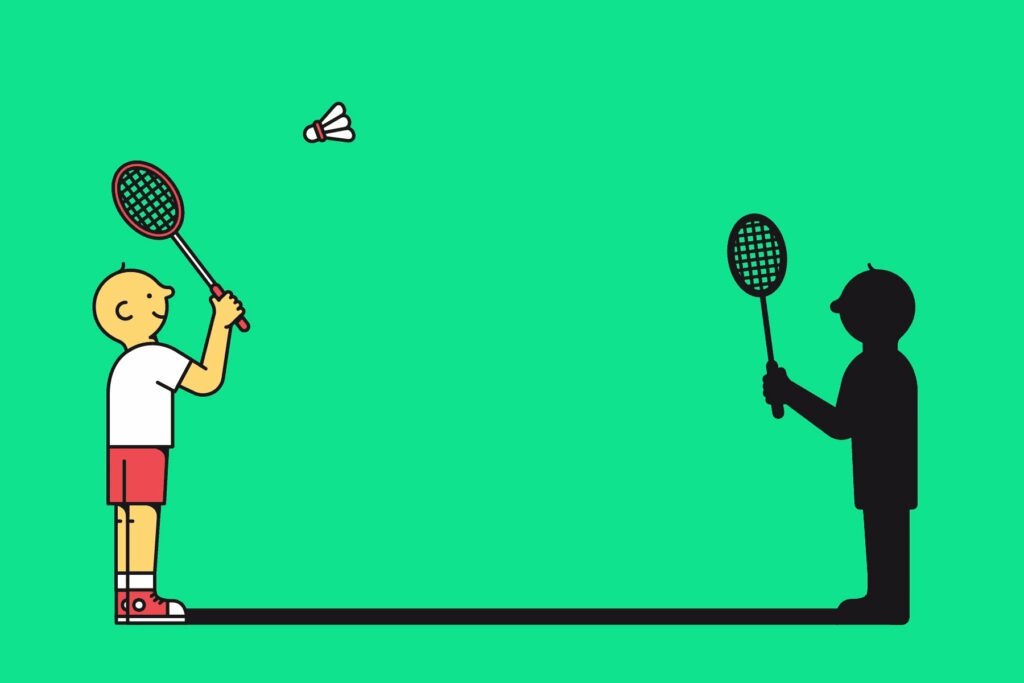
As an adult, you probably don’t think much about your birth order and relationships affected by it as it does not impact your everyday life. But whether you’re a firstborn, middle child, last-born, or an only child, it does play a significant role in making you who you are today. Birth order shows general tendencies but also provides knowledge of our relationships. Find out about your birth order traits and compatibility with other birth orders. (Estimated reading time: 10 minutes)
“Sometimes you have to grow up before you appreciate how you grew up.”
— Daniel Black
Siblings play a unique role in our lives. While friendships come and go, you’re stuck with your siblings for life. Often our brothers and sisters stay with us longer than anyone else.
Because siblings grow up in the same household and have the same parents, there’s a lot of shared history. Those common memories give you plenty to bond over later in life.
Given your upbringing and shared gene pool, you would think you’d have more similarities than differences, but that’s often not the case. This is because the order in which we are born influences our characters and how we approach life.
Think about where you fall within your own family. Did you grow up with many siblings, like Kevin McCallister in “Home Alone,” who got lost in the shuffle and was consequently left behind when his family left for France? If you have siblings, are you the oldest, middle, or youngest child? Or, were you an only child like Moana from the Disney movie “Moana,” who was raised to be Motunui’s next chief—a prestigious title traditionally given to a male heir in Polynesian culture.
Older children have a reputation for being responsible and mature, while the youngest siblings, or “the baby of the family”, are often considered rebellious and able to get away with much more. But those are generalizations, and other factors play into our development.
No matter where you go in life, your birth order can impact your personality and attitude. Psychologists have found a strong link between birth order and relationships, and knowing how to apply this knowledge can lead to more harmonious connections.
Understanding the birth order theory and its significance

As an adult, you probably don’t think too much about your birth order as it does not impact your everyday life. But whether you’re a firstborn or middle child does play a significant role in forming the person you are today. Even if you’re not close to your immediate family, your role in the family unit still has a lingering impact.
Although not all psychologists are on the same page regarding the importance of birth order and relationships in child development, most agree that getting a holistic picture of an individual’s profile is useful.
The concept of birth order was first introduced in the early 1900s by Alfred Adler, an Austrian psychotherapist. He proposed that the order in which a child is born within a family significantly impacts their personal traits and life outcomes in their education, careers, and personal lives.
Adler also asserted that children are not born with inherent qualities but are a product of their family environments, dynamics, and connections through their formative years. While each family is different, he believed there were commonalities in interactions between parents, children, and siblings.
He also made an important distinction between chronological and psychological birth order. Our psychological birth order is our perceived role within our families, which can differ from our chronological birth order. For example, someone may be the youngest child but feel like an only child because their older sibling left home for college when they were young.
Many subsequent research studies have been conducted to determine the scientific merit of Adler’s birth order theory. Many acknowledge that birth order affects child development, but the corresponding traits are not set in stone. Characteristics can overlap, and other factors can change us.
Birth order effectively shows general tendencies that we inherit based on where we stand in our family and how we can use that knowledge to improve ourselves and our relationships.
Other factors that influence our birth order traits
Birth order and relationships and how they show up in our personalities are complex. Each profile is not a cookie-cutter description that will fit every child based on the order that they were born. Outcomes will differ from family to family and child to child.
We are not born with birth order personality traits; we inherit them. For instance, a middle child is not born with typical middle child characteristics ingrained into their psyche. As Adler points out, the result is based on the interactions within family dynamics.
The shape of our individual psychology is a product of several influences in addition to birth order. Other factors that influence us include:
1. Social and cultural beliefs about gender: In some cultures, even if a boy is born after two girls, he may be treated as the older one who must care for his sisters. In another scenario, a girl born into a family of four boys may be treated as the baby even if she is older.
2. Age differences: A sizable age difference (most experts place the age gap over five years) can cause a child to become a psychological firstborn or an only child. If one child goes to middle school while the older sibling moves to another city for college, they will lead separate lives and function differently.
3. Health of a child: If a child is born with a disability, a chronic condition, or is frequently ill, they might become the psychologically youngest child regardless of birth order. The other siblings focus on caring for them and helping them deal with their challenges.
4. Twins: Twins are the exception in the birth order theory because they won’t be raised based on chronological birth order. However, psychological birth order can grow as they develop. Also, twins may get more attention from their parents if there are other siblings in the family.
5. Blended families: Remarriages that add more children will inevitably shuffle existing birth order dynamics. For instance, if a chronological last born with a well-developed personality is blended with an older step-sibling, they must recalibrate their self-perception, which may shift their psychological birth order.
Other factors that influence birth order traits include biological traits inherited from our parents, social and educational influences, cultural attitudes, physical location, specific life events, confidence, and coping abilities.
Birth order personality traits
The following traits are general descriptions related to each role in a family. As you read through them, see which ones you most identify with, regardless of whether it matches your chronological birth order.
Oldest Child: The Achiever

Oldest children benefit from the extra attention they get before their younger siblings are born. However, because their parents are new to the job, they tend to face stricter parenting, more protectiveness, and need to meet higher expectations. This upbringing typically leads to high-achieving qualities and strong leadership.
But this can also mean higher anxiety levels than other siblings, and they might feel entitled to power. Sometimes they can play the second parent to their younger brothers or sisters.
In general, firstborns tend to gain a higher level of education and earn more money. They are usually in leadership roles and positions of authority. Research shows they become politicians and CEOs at a 30% higher rate than their siblings.
Typical birth order traits of the oldest child or firstborn:
- Determined
- Responsible
- Reliable
- Hard-working
- Bossy
- Conscientious
- Careful
- Structured
Middle Child: The Mediator

The middle child is the second, third, or subsequent child with an older and younger sibling. Being sandwiched between siblings often leads to specific traits, referred to as “middle child syndrome,” that relate to feeling left out. They don’t get the extra attention as the oldest, nor are they overindulged like the youngest, which can positively impact their development.
Middle children are known to be agreeable and open to new experiences. As mediators and good compromisers, they are highly invested in getting on well with others and keeping the peace wherever they go. They’re also known to be creative and can combat boredom because of their adaptability. If taken too far, they can be people pleasers. They can be unruly, competitive, and rebellious if they take on more shadow qualities.
Typical birth order traits of the middle child:
- Dreamer
- Peacemaker
- Creative
- Great negotiator
- Social
- Generous
- Rebellious
Youngest Child Traits: The Entertainer

The youngest child is affectionately known as the baby of the family and is often treated as such by their parents and older siblings. Because they tend to be overindulged and get away with more than their other siblings, it’s no surprise that they can be spoiled and attention-seeking. It’s also possible they may receive less attention and get hand-me-downs if there are fewer resources to go around.
These happy-go-lucky kids like to be the center of attention and can be entertainers and class clowns. However, being a perpetual baby can cause them to be overly dependent and lack the internal drive to be independent and stand on their own two feet. They may expect others to take care of them and not have to take up any responsibility or don’t follow through with the plans they create for themselves.
Typical birth order traits of the youngest child:
- Free-spirited
- Outgoing
- Risk-taker
- Dependent
- Charming
- Fun-loving
- Self-centered
- Persistent
Only-Child Traits: The Responsible One

Only children are their parents’ sole focus, and don’t have to deal with sibling competition. But because their parents are fully invested in them, the pressure and expectations can be high, driving them toward traits shared with firstborns, like ambition, a strong will, and independence.
Because they are often around adults more than children, only children can be intelligent, mature, develop vital social skills, and act like “little adults.” This proves to be an asset in their drive for success, channeling it into productive outlets. However, they can be rigid because they tend to get things their way and be selfish. Not having siblings can also make them less competitive.
Typical birth order traits of only children:
- Mature
- Confident
- Independent
- Curious
- Diligent
- Leader
- Loyal
- Perfectionists
How to choose partners based on birth order
Many experts claim that our birth order affects not only our personalities but our love lives as well. The order in which you’re born can offer clues about how you’d get along romantically with other birth orders.
Here are some of the best and worst matches for birth order and relationships. Remember that these are generalizations and that other factors could impact the connection.
If you’re the oldest/ first born
Best match: Last born (Example: Brad Pitt and Angelina Jolie)
The oldest and youngest mesh well together because the firstborn wants to lead and control while the youngest wants to be cared for.
Worst match: Another firstborn (Example: Hillary and Bill Clinton)
Two firstborns will most like butt heads often because both want to be in control and get their own way. Both need to learn to compromise and release the need to manage the connection.
If you’re a middle child
Best match: Last born (Example: Ben Affleck and Jennifer Garner)
The baby and the middle child are a good match because the two will communicate well. The middle is good at compromising, which works well with the outgoing and social personality of the last born. However, they might have issues about who leads, especially if the middle child acts like the last born.
Worst match: Another middle child (Example: Miley Cyrus and Liam Hemsworth)
While middle children are great at negotiating, they can often hide their emotions instead of expressing their feelings and confronting issues. This is more challenging to deal with in a middle-child partnership. With bottled-up feelings, tension can build and eventually lead to problems in the relationship.
If you’re a last born
Best match: Firstborn (Example: Barack and Michelle Obama)
Worst match: Another last born (Example: Courtney Cox and David Arquette)
Two last borns can have a lot of fun together, but their risk-taking and carefree ways could land them in trouble. Someone must take charge and handle responsibilities like finances, home management, and parenting. If things don’t go well, they might blame each other instead of taking ownership.
If you’re an only child
Best match: (Almost) everyone
Only children most likely take one of two personalities: Firstborn or lastborn. Only children are compatible with anyone, depending on which personality they gravitate towards. Based on where they lean, they need to be aware of their strengths and weaknesses and work on the issues they bring up accordingly.
We can’t go back and change the circumstances around our births and the families that surround us. But we can learn from it and make the best of the cards we were dealt. When we have knowledge and self-awareness, we can change ourselves while staying true to those authentic qualities that make us who we are today.
All my best on your journey,
Seline

Question for you: What does your birth order say about you? Do you identify with the general traits? How has it impacted your life?
Did you like this post? Sign up below, and I’ll send you more awesome posts like this every week.

You probably don’t what its like for your three sisters to gang up on you to kidnapped your own mom from you who loves to stay with you as the second oldest boy it’s very frustrating to understand how it’s like to be me so they abuse their own grandma matriarch sacred power, it’s a good thing my father is a traditional native natural healer so my sisters will honor me everyday as the oldest boy now, I have patience for all my sisters and brothers. Amen.
The relationship siblings have is so unique, isn’t it!?!?! It is really interesting to see the similarities and differences I see in the families of my friends. We all have things that make us special and set apart. It is kinda cool to see how birth order might impact that some.
As an only child, this is something that kinda fascinated me. I hear people talk about it and I have had friends tell me their own stories but this is something I will never experience myself… and i am partly glad for that and partly feel like I am missing out on something LOL 😛